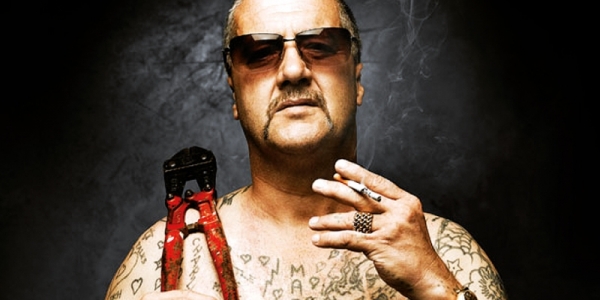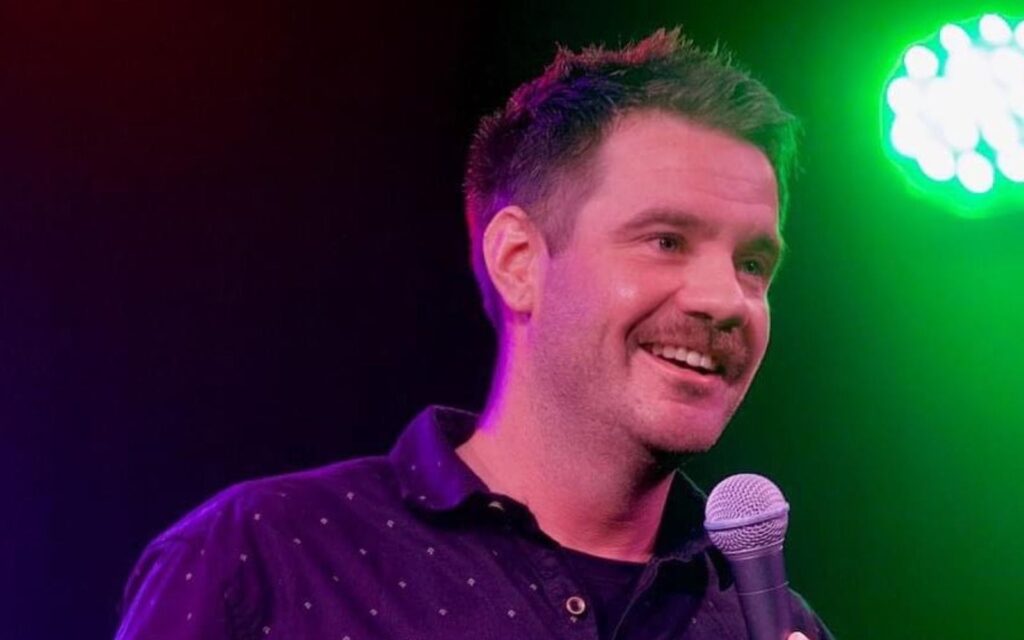“I thought you beat that? In April I read that you were as good as gold,” I note. “I was then! I was full of happiness. That’s how quickly it changes.” In 2011 Read was given six weeks to live but after a two-year battle with the disease he appeared to have come out victorious. “They told me that the 26 tumours had been removed successfully and that there were no more signs of cancer,” he shares sombrely. “Evidently it returned. Recently they sent me home and told me that they couldn’t operate on my liver anymore because quite frankly I’ll die if they go in once more. I said ‘oh, that’s no good’,” he laughs. “So I’ve got about 30 tumours on my liver now, one the size of an apple growing on my adrenal gland. They sent me home. They put me in touch with a palliative care nurse. That’s that I guess.”
It’s in this exchange that the man, who is so vigorously glorified within the media for his animalistic behaviour, now appears less monstrous than us all. Read is now a shadow of his former blowtorch and bolt cutter-wielding self. His tattoos are faded, his eyes drained and his voice fragile. Read never took pride in his violent past, but he also never, and still refuses, to be apologetic for it. “My old man always said to me ‘just don’t touch the ordinary working man, don’t touch any member of the general public that doesn’t have a criminal record. If you just hurt crooks and keep it within the criminal world then you can look at yourself in the mirror.’
“People come up to me in the street and are like ‘hey, how are you Chopper?’ No one spits in my face. People tend to be a bit shocked when they realise that they’re standing next to me in a bookshop, or if they get in an elevator and I’m already in there. I’ve seen quite a few ladies look at me, stand back, and then the elevator door closes on them while they’re looking at me,” he laughs. “I’ve had an entire group of people standing back and looking at me wondering if they should get into the elevator with me. I tell them, ‘the door won’t stay open forever!’ Basically though, people are really nice to me. I mean, I had one guy have a go at me with a tomahawk in the street. But that’s about it.”
Does he regret any of his former actions? No. Neither does he try and pretend they never transpired. “I haven’t run away from what I’ve done. I mean, unless I’m in the middle of a court case and writing a book at the time and I’m pleading not guilty,” he jests. “My second and third books were written during the middle of a trial. Of course I’m going to say that I didn’t do it. Wink wink, nudge nudge! You know how it is.” Read also remains adamant that he feels peoples beliefs about him are often misjudged. “The media portrays me based off some of the books that I wrote,” he details. “Why? Because I admitted to committing murder in the books. I didn’t name them, I didn’t say where I killed them, didn’t say what year I killed them, didn’t say where I buried them. There’s no evidence that they were ever living in the first place.”
“So how many people have you murdered then?”
“If I’m being honest? Probably four to seven people. I mean, you can’t take all of the blame yourself can you?” he asks earnestly. “Especially if you’ve been helped out. Actually, yeah, probably about four if you’re going to get technical about it. Yeah. Personally about four.”
Read notes that he’s also unsure about being labelled as one of the world’s most popular psychopaths. ” Psychopath is what psychiatrists used to classify you as when they didn’t know how to describe you. When they had no idea about your state of mind,” he states. “Some call me a psychopath, some call me a sociopath – a sociopath is meant to be worse, apparently. I asked ‘what’s a sociopath’ and they told me it was someone who doesn’t adhere to the rules, someone who is anti-society. I adhere to the rules of society! They are not something that I disagree with.”
Read becomes mildly distracted by the football again.
“Do you honestly believe that God owes you an apology?”
“When you get to heaven I think that God owes a lot of people a bloody apology,” he lashes. “20 million Russians that I can think of. Six million Jews that I can think of. God knows how many millions were sent all over the world in the name of the British empire and slavery. I don’t think that God has been very kind to the human race. I think he owes me an apology – a bloody big apology. I’ve been crying most of my life. I spent 23 years and nine months in jail. 22 months in mental hospitals. 60 or so servings of shock treatment. I could go on and on.”
As our conversations concludes I ask Read that for all of his lack of regret and repent for his past, does he at all care how the public perceives him? “I don’t know what the public’s perception of me is. It’s always been a mystery to me. Buggered if I know,” he notes before pausing. “When you become a father you become a member of the human race. For no fault of your own. I care about how the public perceive me only because I care about how they’ll treat my boys Charlie and Roy when I’m gone.”
BY TYSON WRAY







